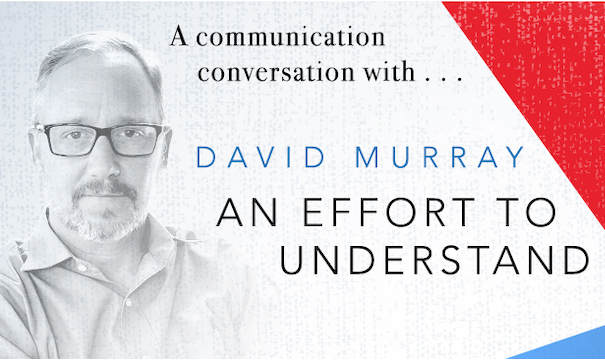Yesterday I had the best time, talking with about 30 communication pros at the software firm Splunk, about what people like us can bring to bear in our work relationships, in our communities, in our troubled country. It is always freshly moving to share these ideas with other writers, and thrilling to hope that my being there is helping them remember the highest purposes of their work—as individuals, and as a group.
I’ve had a number of these conversations this summer, and I expect to be having more of them in the foreseeable future, as leaders of communication teams seek to rally their folks—whether for a return to the office, a new post-COVID refresh or a whole rethinking of the communication mission.
Here’s the discussion guide that I provide. If you think your team could benefit from a shared reading, and a discussion like this, I’ll make the time to do it. And if past is prologue, I’ll enjoy every minute. Email Benjamine Knight about honorarium and availability: psacoo@vsotd.com.
***
From: David Murray
To: Team Leader
Re. How Can You Use An Effort to Understand to Find a Shared Communication Philosophy?
I wrote my book based on a life surrounded by professional communicators.
How can your team draw on all that wisdom—and combine it with their own collected wisdom—to create a shared understanding, about what communication is, what it isn’t, how it works and what it might achieve?
You’ll know that much better than I. After reading the book with your team in mind, you should ask me any question you think we ought to discuss, up to and including any points of contention! I do not consider my book gospel—especially in a group of thoughtful communicators in their own right.
So the questions I put down here are meant only to be a loose guide to the sort of communication we mighthave. You and your team should absolutely determine the conversation we will have. The more the questions come from you and your people and the fewer from my own fevered brain, the better the conversation will be.
The most obviously relevant sections to your folks—and the sections from which you might select all or some essays to assign—are sections Two and Three, which focus specifically on leadership communication.
Possible questions:
1. Authenticity and storytelling are sacred concepts in corporate communications these days. You claim corporate communicators have sometimes misused them. Can we talk about that?
2. At one point on the book, you question the concept of “strategic communication,” and you question whether communication can lead to measurable results. What can you possibly mean by that?
3. In an essay on internal communication, you take us back to a 19th century furniture shop, and suggest that we should help our employees understand our business and marketplace, and our leadership, the way those ancient workers knew theirs. Do you think modern employees truly want that kind of understanding, even if we could manage to give it to them?
4. You question the assumption that what audiences of our communication are mostly concerned with is, “What’s in It for Me.” Well, what are they mostly concerned with?
5. At one point in the book, you say that a person (or a company) communicates not, primarily, by words, but by consistent actions and consistent inactions. Another section is titled, “Communication Is Action!” Let’s talk about the relationship between words and deeds, in leadership communication.
6. In the media interviews about the book, you’ve talked about this concept of “imaginative listening.” Your book is called An Effort to Understand. Are you trying to tell us we don’t listen to each other carefully enough? Because we sure feel like we do.
7. In the introduction you ask your readers to join you on a “near-spiritual” movement in communication in our society. What is the highest purpose of communication, and what could happen if we all came to share it?
